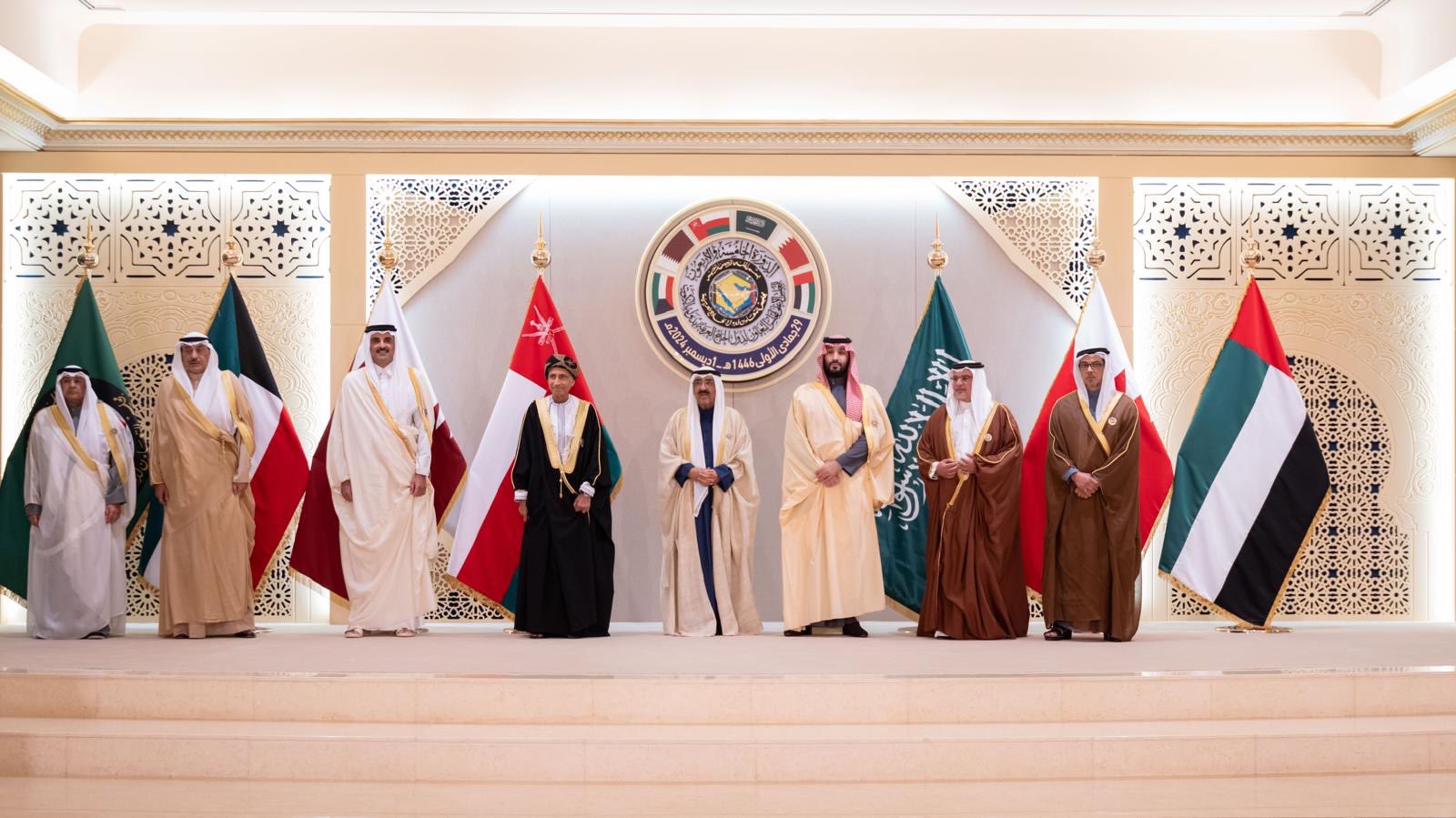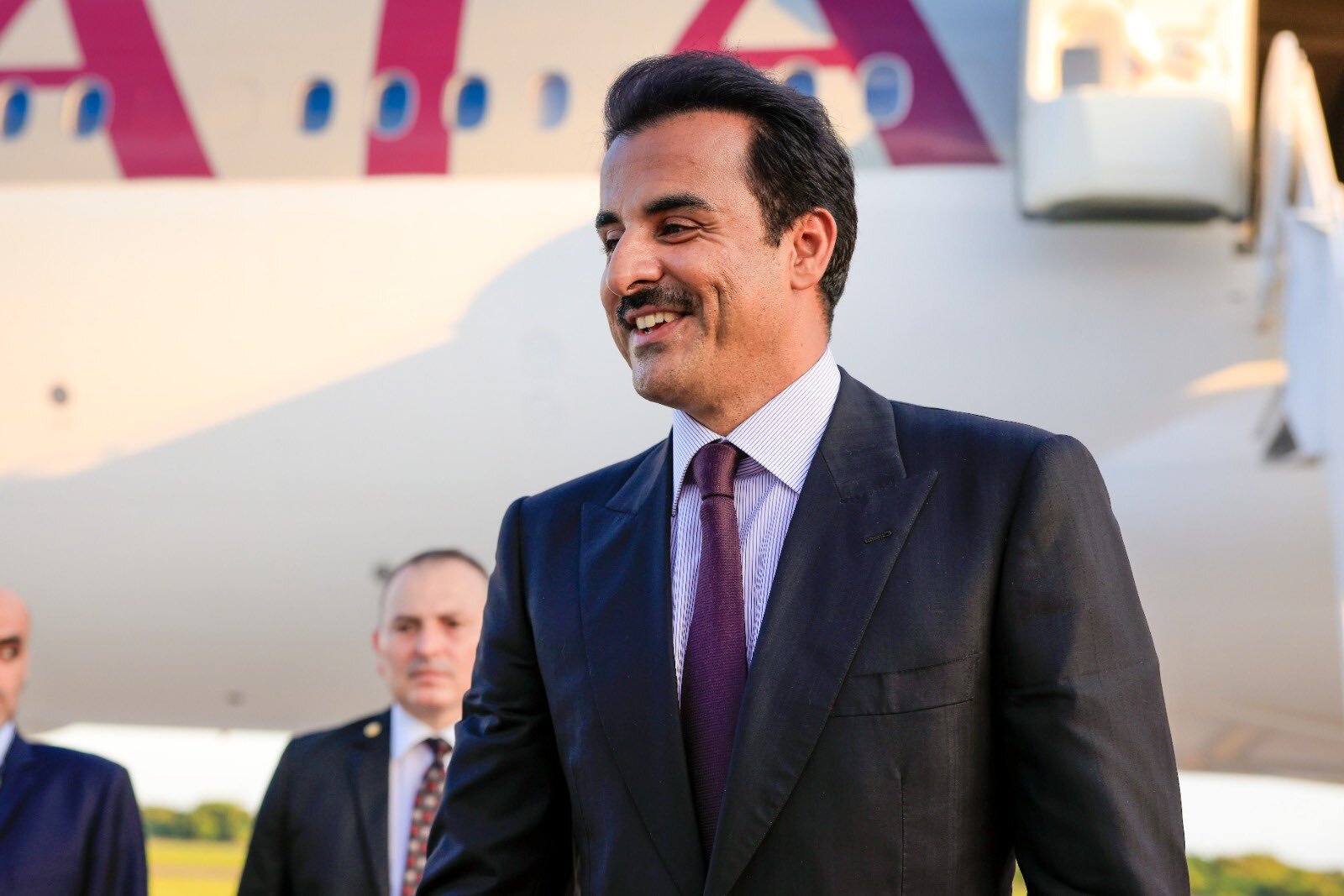The Supreme Council condemned Israel’s bombings in Gaza, calling for an end to the killings, displacement, and destruction of civilian facilities, as the death toll exceeds 44,000, with 70% women and children.
The leaders of the Gulf Cooperation Council (GCC) have expressed deep concern over the escalating challenges in the region, particularly the ongoing war in Gaza, Lebanon and the West Bank.
At the conclusion of the 45th session of the GCC Supreme Council, held in Kuwait on Sunday, the leaders issued a communique that underscored the urgent need for international action to address the ongoing wars and violations in the region.
“The Supreme Council condemned in the strongest terms the shocking and horrific crimes committed by Israeli occupation forces in the Gaza Strip as part of a genocide and ethnic cleansing agenda, including the killing of civilians, torture, summary executions, enforced disappearances, forced displacement, and looting,” the communique read.
The statement focused heavily on the Israeli aggression, particularly in Gaza, Lebanon, and the West Bank, as well as violations in Jerusalem and sacred sites.
The council condemned the continued violence, including the displacement of civilians, the destruction of infrastructure, and the targeting of health facilities, schools, and places of worship, all of which they deemed clear violations of international law.
The GCC leaders called for an immediate cessation of hostilities, urging intervention to protect civilians and initiate meaningful negotiations for long-term solutions.
“The Supreme Council called on the Security Council to adopt a binding resolution under Chapter VII of the United Nations Charter that guarantees compliance by the Israeli occupation forces with an immediate ceasefire and an end to the genocide and forced displacement of the Palestinian people, the entry of humanitarian aid, and the restoration of normalcy in the Gaza Strip,” the GCC communique stated.
The statement reaffirmed the GCC’s unwavering support for the Palestinian cause, calling for the end of the Israeli occupation and the establishment of an independent Palestinian state with East Jerusalem as its capital.
The council also emphasised the importance of ensuring refugees’ rights in accordance with the Arab Peace Initiative and international resolutions.
Further, the leaders welcomed the results of the extraordinary Arab-Islamic summit held in Saudi Arabia on November 11, 2024, which sought to intensify international efforts to halt the war crimes in Gaza.
They commended Qatar’s role in brokering a ceasefire and facilitating the exchange of detainees.
The leaders also condemned Israel’s actions in Lebanon and warned that the continuation of such aggression could destabilize the region and undermine international peace and security.
The GCC expressed full solidarity with the Lebanese people, urging them to prioritise national unity and continue efforts for the peaceful resolution of internal conflicts.
In addition to addressing regional security issues, the GCC leaders also discussed efforts to strengthen the region’s economic and digital infrastructure.
They emphasised the strategic importance of the digital economy, highlighting the region’s investments in 5G networks, data centres, and emerging technologies such as artificial intelligence and cybersecurity.
The leaders stressed that these investments have positioned the GCC countries as key players in the global digital economy and are essential for promoting innovation, enhancing competitiveness, and supporting economic diversification.
The council also underscored the importance of regional cooperation in developing joint digital strategies, such as facilitating e-commerce, improving digital payment systems, and enhancing cybersecurity.
These initiatives aim to further integrate the GCC’s economies and increase their global competitiveness.
Furthermore, the leaders stressed the need for continuous follow-up on the decisions made at the summit to ensure their effective implementation.
In this regard, they also highlighted the importance of empowering women and youth in the region and fostering the role of universities, research centres, and opinion leaders in preserving Gulf identity and heritage.
The leaders concluded by reaffirming their commitment to building a sustainable future for the region through continued economic diversification and climate action. They called for a balanced approach that integrates innovation with social and environmental sustainability.
At the summit, the Amir of Qatar, Sheikh Tamim bin Hamad Al Thani, remarked on the significance of the 45th session in facilitating discussions on boosting Gulf cooperation in all areas.
In a post on X, he also congratulated Kuwait on its leadership in presiding over the current session, wishing the country success in further advancing the path of joint Gulf action.







